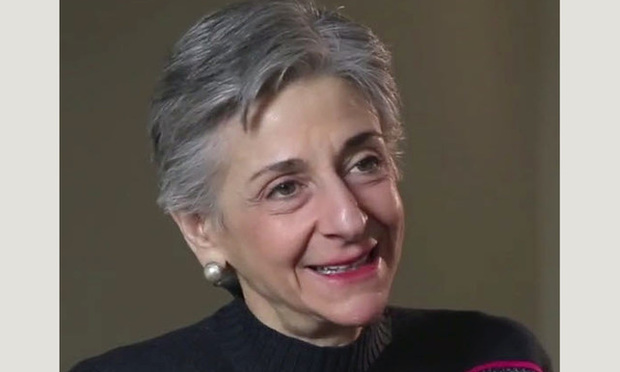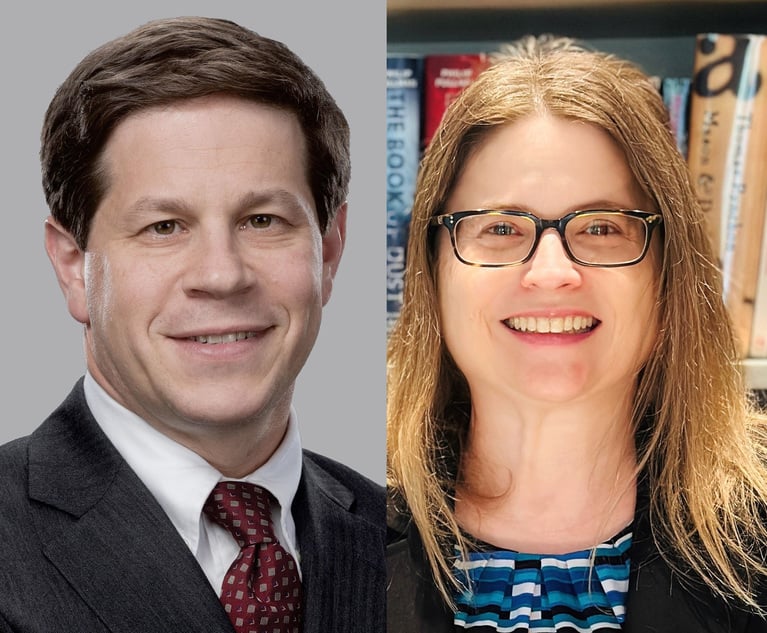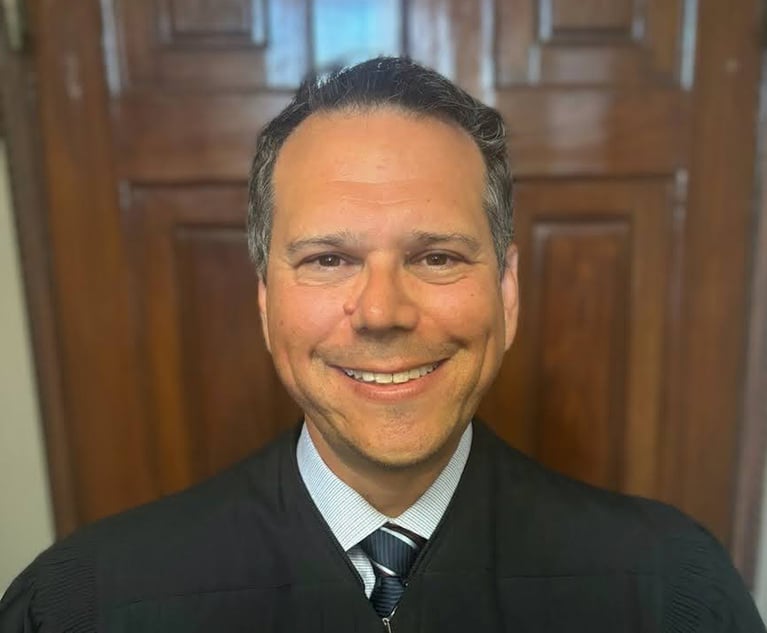Houston Judge Nixes Bid to Ban Library's 'Drag Queen Storytime' on Religious Grounds
A Houston federal judge has rejected an unusual attempt by a group of religious activists to ban “Drag Queen Storytime” at a public library based…
January 07, 2019 at 04:02 PM
4 minute read
The original version of this story was published on Texas Lawyer
 Judge Lee H. Rosenthal, Chief United States District Judge of the United States District Court for the Southern District of Texas. Photo: SPDuffy527 via Wikimedia Commons
Judge Lee H. Rosenthal, Chief United States District Judge of the United States District Court for the Southern District of Texas. Photo: SPDuffy527 via Wikimedia Commons
A Houston federal judge has rejected an unusual attempt by a group of religious activists to ban “Drag Queen Storytime” at a public library based on their claim that the event violated the First Amendment by advancing a purported religion: secular humanism.
According to the decision in Christopher v. Lawson, the dispute centers on the events held last year at Houston's Freed-Montrose Neighborhood Library, which were advertised as appropriate for all ages and including “vibrant Queens who will help instill a sense of love and acceptance in our children while encouraging them to be true to themselves.”
Religious activists demanded that the library terminate Drag Queen Storytime, first by alleging that the event violated community decency standards. The library officials refused, noting that American public libraries have historically been on the front lines of promoting inclusivity and dispelling intolerance.
The activists responded by filing a complaint before Lee Rosenthal, chief judge of the Southern District of Texas, seeking to ban the event based on claims that Drag Queen Storytime advances a religion in violation of the Establishment Clause of the First Amendment. In the complaint, the activists argued that the library is a public place and used government funds to promote an event they allege was nonsecular because the LGBTQ community is associated with a religion—secular humanism.
Specifically, the complaint alleged that the library violated the establishment clause by advancing secular humanism over other religions, including Christianity.
The defendants, including the executive director of the library and Houston Mayor Sylvester Turner, moved to dismiss the plaintiffs' complaint for failure to state a claim.
In her decision, Rosenthal concluded that the plaintiffs did not have standing to file the case because they could not prove they had been injured by Drag Queen Storytime.
“The plaintiffs are using this case—and similar cases filed in other jurisdictions—to protest the gay-rights movement and the legal rights federal courts have recognized for members of the LGBTQ community,” Rosenthal wrote. “The plaintiffs also allege that they have been 'libeled, harassed, targeted, and ostracized online and in person because [they] have spoken out publicly [that] homosexual orthodoxy is a religion.'”
“The plaintiffs lack standing because, as the defendants correctly argue, 'eliminating [Drag Queen Storytime] will not cure their perceived feelings of persecution,'” Rosenthal wrote.
Rosenthal also concluded that the plaintiffs had failed to state a constitutional claim because “even accepting that secular humanism could be a religion for Establishment Clause purposes, the plaintiffs fail to allege any facts or basis showing that 'Drag Queen Storytime' is a religious activity.”
“There is no allegation that a reader discussed secular humanism at the event, or that any story the library selected invoked secular humanism or any religion at all,” Rosenthal wrote, dismissing the plaintiffs' case with prejudice. “The plaintiffs instead make only conclusory statements associating secular humanism with the event. The statements are not entitled to be taken as true.”
Eric B. Dick, a Houston attorney who represents plaintiff Tex Christopher in the case, said the plaintiffs will likely appeal Rosenthal's decision.
“Judge Rosenthal is an interesting judge and I have nothing but respect for her,” Dick said. “But when you're a federal judge and you're there for life you can of do whatever you want to do. I think she wasn't interested in the case and she chose to find there wasn't standing.”
Alan Bernstein, director of communications for Turner, declined to comment to the ruling but referred to a statement the mayor issued last year in which he called the lawsuit “frivolous.”
“We acknowledge and celebrate that diversity in all its dimensions,” Turner said in the statement. “As mayor of this city I want us to be diverse and inclusive and I want to live in a city where people can be who they are and we can be tolerant of people 's opinions, ideologies, sexual orientation, ethnicities, religion and cultures.”
This content has been archived. It is available through our partners, LexisNexis® and Bloomberg Law.
To view this content, please continue to their sites.
Not a Lexis Subscriber?
Subscribe Now
Not a Bloomberg Law Subscriber?
Subscribe Now
NOT FOR REPRINT
© 2025 ALM Global, LLC, All Rights Reserved. Request academic re-use from www.copyright.com. All other uses, submit a request to [email protected]. For more information visit Asset & Logo Licensing.
You Might Like
View All
Litigators of the Week: Simpson Thacher and ACLU Team To Challenge Louisiana's Ten Commandments Law

A Reporter and a Mayor: Behind the Scenes During the Eric Adams Indictment News Cycle

Even With New Business Courts, Texas Is a Long Way from Taking Delaware's Corporate Law Mantle
5 minute read
Trending Stories
- 15th Circuit Considers Challenge to Louisiana's Ten Commandments Law
- 2Crocs Accused of Padding Revenue With Channel-Stuffing HEYDUDE Shoes
- 3E-discovery Practitioners Are Racing to Adapt to Social Media’s Evolving Landscape
- 4The Law Firm Disrupted: For Office Policies, Big Law Has Its Ear to the Market, Not to Trump
- 5FTC Finalizes Child Online Privacy Rule Updates, But Ferguson Eyes Further Changes
Who Got The Work
J. Brugh Lower of Gibbons has entered an appearance for industrial equipment supplier Devco Corporation in a pending trademark infringement lawsuit. The suit, accusing the defendant of selling knock-off Graco products, was filed Dec. 18 in New Jersey District Court by Rivkin Radler on behalf of Graco Inc. and Graco Minnesota. The case, assigned to U.S. District Judge Zahid N. Quraishi, is 3:24-cv-11294, Graco Inc. et al v. Devco Corporation.
Who Got The Work
Rebecca Maller-Stein and Kent A. Yalowitz of Arnold & Porter Kaye Scholer have entered their appearances for Hanaco Venture Capital and its executives, Lior Prosor and David Frankel, in a pending securities lawsuit. The action, filed on Dec. 24 in New York Southern District Court by Zell, Aron & Co. on behalf of Goldeneye Advisors, accuses the defendants of negligently and fraudulently managing the plaintiff's $1 million investment. The case, assigned to U.S. District Judge Vernon S. Broderick, is 1:24-cv-09918, Goldeneye Advisors, LLC v. Hanaco Venture Capital, Ltd. et al.
Who Got The Work
Attorneys from A&O Shearman has stepped in as defense counsel for Toronto-Dominion Bank and other defendants in a pending securities class action. The suit, filed Dec. 11 in New York Southern District Court by Bleichmar Fonti & Auld, accuses the defendants of concealing the bank's 'pervasive' deficiencies in regards to its compliance with the Bank Secrecy Act and the quality of its anti-money laundering controls. The case, assigned to U.S. District Judge Arun Subramanian, is 1:24-cv-09445, Gonzalez v. The Toronto-Dominion Bank et al.
Who Got The Work
Crown Castle International, a Pennsylvania company providing shared communications infrastructure, has turned to Luke D. Wolf of Gordon Rees Scully Mansukhani to fend off a pending breach-of-contract lawsuit. The court action, filed Nov. 25 in Michigan Eastern District Court by Hooper Hathaway PC on behalf of The Town Residences LLC, accuses Crown Castle of failing to transfer approximately $30,000 in utility payments from T-Mobile in breach of a roof-top lease and assignment agreement. The case, assigned to U.S. District Judge Susan K. Declercq, is 2:24-cv-13131, The Town Residences LLC v. T-Mobile US, Inc. et al.
Who Got The Work
Wilfred P. Coronato and Daniel M. Schwartz of McCarter & English have stepped in as defense counsel to Electrolux Home Products Inc. in a pending product liability lawsuit. The court action, filed Nov. 26 in New York Eastern District Court by Poulos Lopiccolo PC and Nagel Rice LLP on behalf of David Stern, alleges that the defendant's refrigerators’ drawers and shelving repeatedly break and fall apart within months after purchase. The case, assigned to U.S. District Judge Joan M. Azrack, is 2:24-cv-08204, Stern v. Electrolux Home Products, Inc.
Featured Firms
Law Offices of Gary Martin Hays & Associates, P.C.
(470) 294-1674
Law Offices of Mark E. Salomone
(857) 444-6468
Smith & Hassler
(713) 739-1250






